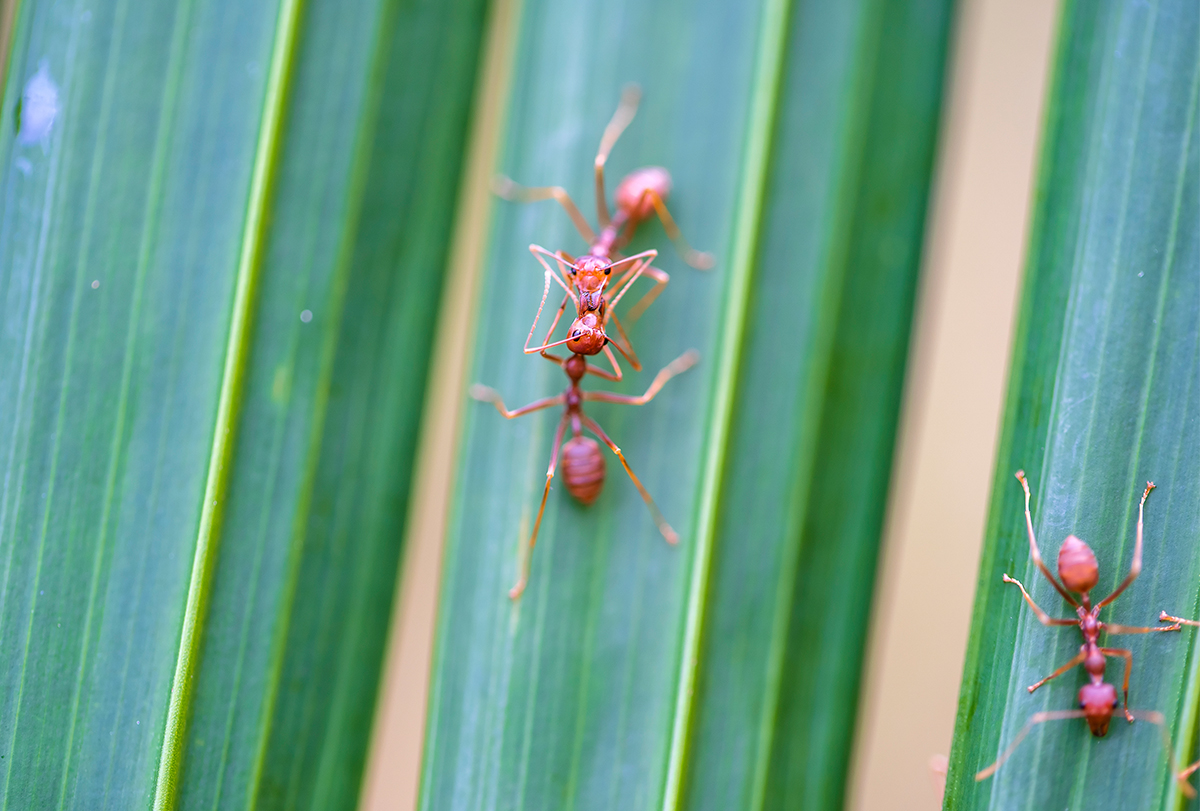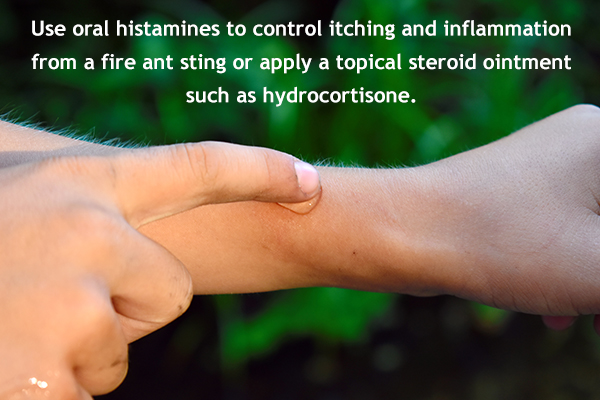In this article:
Fire ants are venomous, aggressive insects that have pinching mandibles on the head with which they can bite your skin. The female ones also have a sharp stinger on the rear of their body which is connected to an internal venom sac.

So, while male ants can only bite, female ants can both bite and sting. Both these forms of attack can hurt, but a sting produces a more extreme reaction. Good thing is these ants only attack in response to a potential threat, such as when they are being stepped on. But when they do, they usually do it in groups causing multiple stings or bites.
How Common Are Fire Ant Stings?
The barren terrain of the Southern U.S. like Texas is a suitable dwelling ground for fire ants where they can easily build their ant hills. Other states known for harboring ant hills include Florida, California, and Arizona. Therefore, people in these places are more likely to get stung by fire ants.
Fire ants cause many more stings than bees or yellow jackets in regions which are greatly infested with them such as the states mentioned above, which is reflective of how aggressive they are. (1)
Why Does a Fire Ant Sting Hurt?
Female fire ants poke their stinger into the human skin to release poisonous toxins which trigger immediate pain in the affected area. What makes this worse is that fire ants attack in clusters and sting multiple times as they cling onto your skin. (1)
This is followed by the development of localized inflammatory symptoms over the next few hours, which can generally be managed at home without medical assistance. However, sometimes the sting can result in a full-blown systemic reaction and even induce anaphylaxis that can prove fatal if not met with prompt medical treatment. (2)
Fire ants tend to produce maximum amount of venom during summers which results in more severe reactions that are far more painful and extensive than when you get stung any other time of the year.
Signs and Symptoms of Fire Ant Stings

The following are some signs and symptoms of fire ant stings:
- Immediate onset of pain which subsides after a while and is milder than that of a bee sting
- Localized urticaria or a hive-like painful red spot with an elevated white center develops at the sting site within 30 minutes of the attack
- The spots often develop tender, itchy, pustular lesions in the following hours which can persist for several days to weeks
- Strong pinching or burning sensation shortly after the sting
- Swelling in and around the sting site
- The swollen skin may feel hot and tender
- Erythema or flushing
- Itching at the affected site
- The area around your eyes may become extreme swollen if your upper face gets stung
- The swollen skin may become hard and thick overtime
- A semi-circular mark made up of multiple stings by a single ant
Medical Treatment of Fire Ant Stings
The medical treatment for fire ant stings or bites depends upon the severity of the bodily response to the venom. If the inflammatory symptoms remain limited to the sting site, you can usually do without medical treatment and get relief through simple self-care measures like ice therapy.
But before anything, you must first remove the fire ants stuck to your skin or else they will keep on stinging. Then wash the sting site with an antiseptic solution and cool water to minimize the risk of infection. Now if you have a mild, localized reaction, apply a cool compress over the affected skin to bring down the swelling and ease the itching.

If that does not suffice to give you comfort, consult your doctor who may recommend any of the following depending upon your symptoms:
- Oral histamines to control itching and inflammation or a topical steroid ointment applied such as hydrocortisone
- Analgesics such as acetaminophen to treat pain if any
- Short course of oral corticosteroids such as prednisone for large local reaction if inflammation does not resolve at a normal pace
The following interventions are generally reserved for severe reactions:
- Epinephrine injection in case of an anaphylaxis shock
- Basic life support for anaphylaxis
- Antihistamine injection
In the most severe allergy cases, long-term treatments may be needed, including whole body extract venom immunotherapy called V-IgE (immunoglobulin E) which is a skin test done at an allergist’s office and epi-pens for self-management when aid is not readily available.
Diagnosing a Fire Ant Sting
Doctors generally diagnose ant bites/stings depending upon the symptoms they engender which also indicate the severity of the reaction.
You may be asked if you have recently visited a possible dwelling site for ants or other insects, or any other form of exposure to them to trace you back to the source of the sting. Tests to rule out allergies or skin testing will only be conducted in cases presenting with severe systemic reaction.
Risk Factors
The following can increase your chances of getting stung by fire ants or worsen the reaction thereafter:
- Visiting areas with little to no ground cover, barely any trees and compact soil that are generally inhabited by fire ants
- Not wearing gloves while gardening
- Adults especially those that are above 45 years are at a higher risk of developing severe systemic reactions than children
- Being stung by a fire ant or a wasp in the past
Complications of Unresolved Fire Ant Stings
Fire ant sting or bites are rarely a cause of concern unless you are allergic to their venom which can induce relatively strong reactions (3) marked by the development of painful blisters and gastrointestinal distress.
In most cases, the condition will worsen over the next 1 to 2 days and can take up to 7 to 10 days to go away completely. A severe response to fire ant venom can result in the following complications:
- Hypotension
- Secondary infection
- Profuse vomiting
- Uterine cramping
- Severe abdominal pain
- Anaphylactic shock, loss of consciousness and death (4)
- Respiratory and cardiac arrest
Anaphylaxis typically presents symptom within 30–40 minutes of the sting and must be treated as a medical emergency, since delayed or improper treatment can lead to death.
When to See a Doctor

Mild localized reactions to fire ant stings or bites tend to resolve within 24 hours of the attack without any medical treatment. But some people may develop an intense local reaction or mild to severe systemic reaction, especially if they are allergic to the ant venom. In such cases, medical care becomes a necessity. Here are a few cases in which you must seek medical attention:
- Hoarseness
- Wheezing/bronchospasm
- Having a hard time swallowing
- Chest pain
- Nausea
- Dizziness
- Severe itching in large areas
- Sting inside the mouth
- Sting on the eye
- Signs of infection
Final Word
Fire ant stings can trigger varying degrees of reaction in different people, and have to be treated accordingly. Mild cases that present localized pain, inflammation and lesions generally resolve on their own, although you can use home treatments to ease the discomfort.
But if the localized reaction presents severe symptoms, you may have to resort to analgesics or steroids to counter the pain and swelling respectively. Severe and systemic reactions, on the other hand, warrant a visit to the doctor for more intensive treatment.

- Was this article helpful?
- YES, THANKS!NOT REALLY


